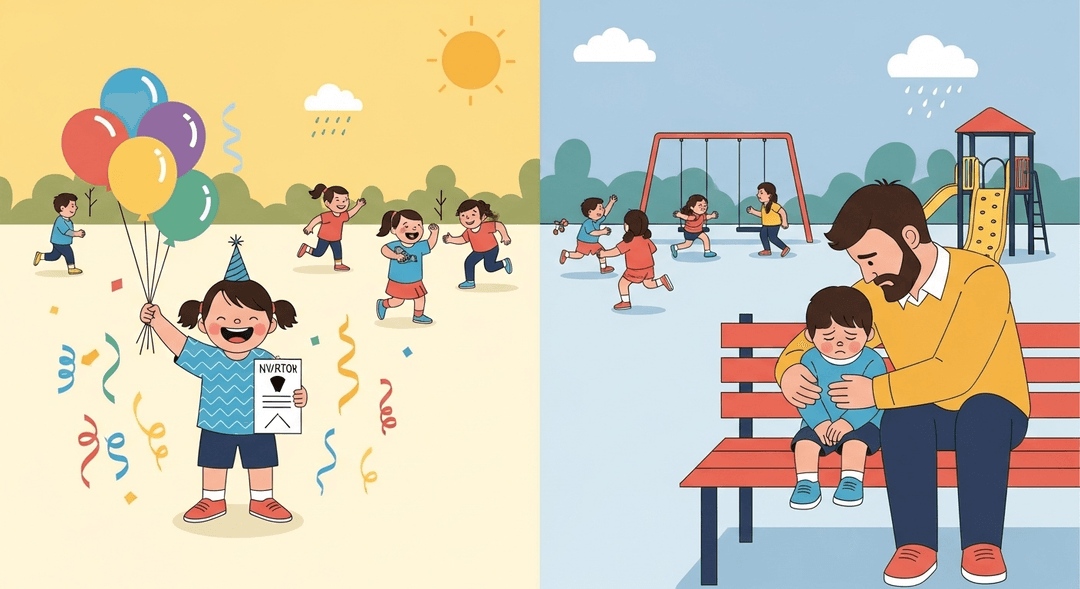Celebrate Their Social Successes and Support Them Through Social Setbacks
You know that moment when your kid finally gets invited to a birthday party and you want to throw confetti, but last week they were sobbing because 'nobody picked me for tag'? Welcome to the emotional roller-coaster that is your child’s social life! If you’ve ever found yourself celebrating a successful playdate like it’s the Super Bowl, only to be called in for emergency hugs after a playground snub, this one’s for you. Spoiler: You might need snacks. For both of you.
Kids who feel supported through social highs and lows build stronger self-esteem, resilience, and empathy. When you celebrate their wins, their brains get a lovely hit of dopamine (hello, happy chemicals!). When you help them process setbacks, you’re literally wiring their brains for better emotional regulation and problem-solving. Bonus: You get to practice your own deep breathing.
How to do it
-
When your child shares a social success, celebrate enthusiastically. Give high-fives, do a silly dance, or simply say, "That’s awesome!" Showing excitement helps reinforce their positive experience.
-
If they talk about a setback, focus on listening. Avoid jumping in to fix the problem right away. Instead, offer empathy with responses like, "That sounds tough." Let them know you’re there to support them.
-
Help your child identify their feelings by naming them. Say things like, "You seem sad," or "You look frustrated." Share a story about a time you felt the same way to help them feel understood and less alone.
-
Work together to brainstorm one small step they could try next time. This could be something simple, like saying hi to a new friend or asking to join a game. Small actions can build confidence over time.
-
Remind both your child and yourself that social skills take practice, just like learning to ride a bike. It might feel wobbly at first, but with encouragement and time, they’ll improve.
Key Tips:
- Celebrate all wins, big or small.
- Listen more than you talk when setbacks happen.
- Name and normalize feelings.
- Focus on small, actionable steps.
- Be patient—progress takes time.
